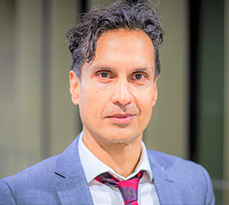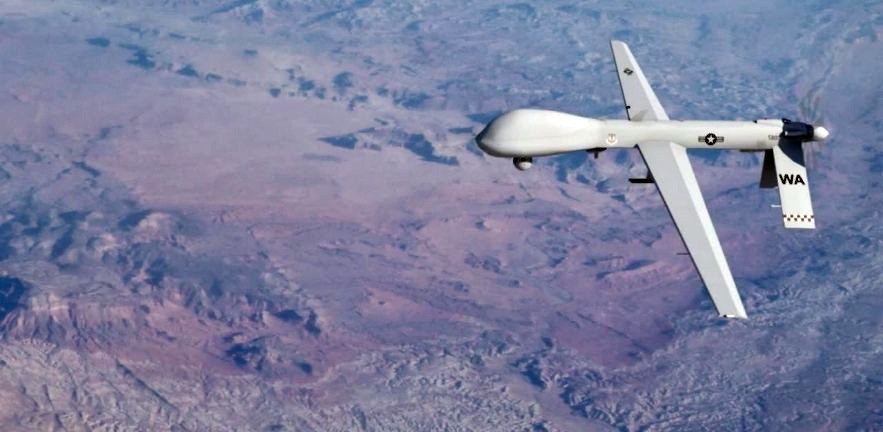New technology can disrupt the moral value of work, shows award-winning study co-authored by Shahzad Ansari of Cambridge Judge based on the diaries of 43 US military drone operators.

A new study based on the personal diaries of 43 US Air Force personnel involved in drone warfare, published in the journal Organization Science, shines new light on how a changed working environment due to emerging technology is “infused” with moral emotions. The study’s novel use of unsolicited diaries allowed the authors to break through a macho military culture in which feelings are rarely expressed.
“We show how emerging technologies disrupt the meaning and moral values of work” and how such technology can “evoke feelings about right and wrong,” the authors say. This depends on whether service personnel see the technology as a force for good that makes the world safer, or as a force for evil that allows waging war with impunity and potentially anywhere on earth.
The paper, which was recently named Best Paper by the Organization and Management Theory (OMT) division of the Academy of Management, describes how these “cubicle” warriors cope with their ambivalent feelings about waging war from afar.
Analysis of the drone operators’ unsolicited diaries represents a “novel methodology”, particularly in “highly regulated ‘masculine’ organisational contexts” such as the military in which there is a “preference for rationality over emotionality” and therefore little organisational support to share feelings.
“Previous research on emerging technologies has largely focused on how tech affects organisation, behaviour or status in the workplace, but we focus instead on how new technologies disrupt the moral values that make work meaningful to people,” says study co-author Shahzad (Shaz) Ansari, Professor of Strategy & Innovation at Cambridge Judge Business School.
“Drone technology has enabled warfare to be conducted remotely by people who have a very intimate picture of their potential targets through lengthy surveillance, and this clearly triggers intense emotional ambivalence.”
The study – entitled “Waging war from remote cubicles: how workers cope with technologies that disrupt the meaning and morality of their work” – is co-authored by Assistant Professor Madeleine Rauch of Copenhagen Business School and Professor Shaz Ansari of Cambridge Judge Business School.
The authors conclude that drone technology has revolutionised warfare in three ways: by dissolving traditional boundaries between work and personal life, by redefining the moral parameters of work, and by allowing “distanciated intimacy” – a remote social bonding through peeking into the mundane life of people appearing on their computer screens.
Among the comments from drone operators included in the study:
“It is a surreal feeling the moment you step out of the control room. Within minutes you are no longer in a combat zone but on your way back home to your family in peaceful America. Maybe doing a quick stop at Walmart to pick up groceries for the BBQ planned or get a slushy. Minutes before you were gathering intel in Pakistan. This transition is the hardest part of the job because one has no such switch button in the head to change from being in Pakistan to your daughter’s birthday party.“
“Ordinary people aren’t that much different to us. Similar problems, fighting with the spouse, smoking, drinking, well, some illegal alcohol. Well, their sense of fashion is, let’s say, different but with 100F [38C] I also might wear loose clothing. If you take away those dresses, it could be somewhere in rural Midwest US.”
“Sometimes it goes even that far, when we are bored during nightshifts when not much is going on, we fly over Michigan [nickname given to a rural area in Afghanistan characterised by lakes] and check up on Kim [Kardashian, nickname given to a flashy local, in reference to a US media personality] and update on her recent boy drama.”
Use of drones by the US military escalated rapidly since the beginning of the war in Afghanistan in 2001, with 542 drone strikes recorded during the eight years of President Barack Obama’s presidency and drone strikes continuing under Donald Trump’s quest for “precision warfare” in regions such as Yemen and Somalia.
The new study is based on 43 unsolicited personal diaries by military professionals working for the US Air Force in the Unmanned Combat Aerial Vehicles (UCAV) programme; the diaries are complemented with interviews, participant observations, and archival documents. The authors also visited the drone programme’s centre in the Nevada desert outside Las Vegas to “get a feel for the situation in which these diaries were written” – learning that the military dislikes the word “drone” and instead uses the term “unmanned RPAs” (remotely piloted aircraft).
The study identifies four different strategies used by drone operators to deal with their emotional ambivalence: disregard problematic issues by focusing on the core safeguarding values of being a soldier; reframing this new work as a force for good outside its narrow mission; focusing only on the job at hand by accepting “things” as part of the job; and estrangement, as 14 of the studied drone operators left the organisation after finding none of the coping techniques viable.
“We did not observe any denials of responsibility to reduce negative feelings that arose from the violation of their own values,” the study says. “Moreover, being engaged in secretive drone programmes, seen by many as ‘dishonourable’ and lacking ‘skin in the game’ compared with in-person operations, evoked feelings of anguish and despair in the drone operators because they felt that the profession they held dear was being morally degraded.” At the same time, the drone programme allowed tackling asymmetric warfare (terrorism) that was not conducted in traditional battlefields. The award by the Organization and Management Theory (OMT) division of the Academy of Management “recognises the empirical or conceptual paper submitted to the Academy of Management annual meeting that offers a significant contribution to the field of organisation and management theory”.


